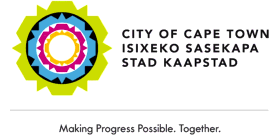Silent Killer: 'Normal' Blood Pressure in 30s Linked to Future Heart Attacks

New research underscores a critical health concern for younger adults: individuals in their thirties and forties with “normal but high” blood pressure may face a significantly increased risk of heart attack or stroke later in life. This finding challenges conventional thinking and highlights the urgent need for regular blood pressure checks, even when readings appear to be within a ‘normal’ range.
Globally, over 1.3 billion people suffer from high blood pressure, also known as hypertension, which remains the primary cause of heart attack and stroke. Often called a “silent killer,” hypertension frequently presents no symptoms, leaving roughly half of affected individuals unaware of their condition until it is too late. Uncontrolled hypertension has also been linked to serious outcomes such as kidney failure and dementia, though early detection and management can prevent these consequences.
Experts at University College London (UCL) conducted a comprehensive study, supported by the British Heart Foundation (BHF) and published in Circulation: Cardiovascular Imaging. They followed 505 participants from the National Survey of Health and Development, all born in March 1946, over four decades. Blood pressure measurements were taken at regular intervals: ages 36, 43, 53, 62, 69, and 77 years.
The research revealed that individuals who experienced “normal but high” blood pressure in their thirties and forties suffered reduced blood flow to their heart by age 77, substantially elevating the risk of major cardiovascular events. Dr. Gaby Captu, consultant cardiologist at the Royal Free Hospital, London, emphasized:
“Small steady increases in blood pressure through adulthood, even if you have a ‘normal but high’ reading, can be quietly damaging the heart long before symptoms appear. Your blood pressure in your thirties can affect the heart 40 years later. Our hearts remember decades of blood pressure exposure. Therefore, protecting heart health must start while you're young, before blood pressure begins to creep up.”
The study meticulously tracked blood pressure trajectories. It found that the longer individuals endured higher uncontrolled blood pressure, and the more dramatically their readings rose, the greater the likelihood of heart attack, stroke, or heart failure in later life. Specifically, every 10-point increase in systolic blood pressure between ages 36 and 69 was associated with up to a 6% reduction in blood flow to the heart at 77 years old. Systolic pressure, the top number in a blood pressure reading, measures the pressure when the heart pumps blood.
The most significant impact was observed in people aged 43 to 63, where a systolic blood pressure rise from 120 to 140mmHg was linked to up to a 12% reduction in blood flow to the heart in later life. Dr. Cristian Topriceanu, PhD Fellow at UCL and lead author, clarified:
“It’s not just how high your blood pressure is, but also how fast it rises over time, that predicts how well—or how poorly—blood is able to flow to the heart in your later years.”
The study also showed that those whose blood pressure remained consistently high from age 36 were 33% more likely to experience a major cardiovascular event, even after accounting for confounding factors such as age, sex, BMI, exercise, and smoking or drinking habits. Surprisingly, even individuals with well-controlled blood pressure at age 77 displayed adverse effects from uncontrolled blood pressure in their younger years.
These findings suggest a paradigm shift in risk assessment, moving beyond single blood pressure readings to consider long-term trajectories. Dr. Topriceanu noted:
“This gives doctors a new way to think about risk—by looking at blood pressure trajectories, not just one-off readings. Spotting and treating these changes earlier could help identify those at risk of heart attacks, strokes, and heart failure later in life.”
Current medical guidelines typically recommend starting medication only when systolic readings exceed 140mmHg, or 130mmHg for those with pre-existing heart disease. However, the study’s experts advocate managing blood pressure from a young age, ideally keeping it below 120mmHg, as crucial for maintaining optimal heart health in later life. This recommendation comes amid alarming NHS data showing a 95% increase in heart attacks among 25-29 year-olds over the past decade, albeit from a low base.
Looking ahead, researchers hope to initiate clinical trials measuring participants’ blood pressure from as early as 18 years old. The goal is to determine if prescribing treatment at the first signs of hypertension could substantially reduce the risk of heart attack or stroke. The study concludes:
“Lifelong blood pressure control is an investment in how well the heart ages. Protecting heart health must start while you're young.”
Professor Bryan Williams, Chief Scientific & Medical Officer at the BHF, lauded the research:
“Blood pressure is a silent killer and the most important cause of heart attacks, stroke, and early death in the UK each year. This research suggests we should encourage people to have regular blood pressure checks from a younger age, when it’s often easier to control. Doctors should also reconsider recommending earlier lifestyle changes or medication to bring blood pressure under control, providing long-term health benefits.”
While high blood pressure often lacks symptoms, medications such as amlodipine and ramipril can prevent complications like heart disease, stroke, and kidney problems. Beyond medication, the NHS advises adults to engage in at least 150 minutes of moderate-intensity aerobic activity weekly, alongside dietary and lifestyle adjustments.
The field of hypertension treatment is also evolving. A new drug, Baxdrostat, shows promise for millions unresponsive to existing treatments. Hailed as a “triumph of science,” Baxdrostat addresses the underlying cause of hypertension, offering 24-hour protection. This development comes amid data indicating premature deaths from cardiovascular problems at their highest levels in over a decade, with chronic stress in young people now recognized as a major, underappreciated risk factor.
You may also like...
Boxing Titans Collide Again: Mayweather vs. Pacquiao Rematch Buzz

Boxing legends Floyd Mayweather Jr. and Manny Pacquiao are set for a highly anticipated rematch on September 19 at the S...
UCL Drama: Juventus Star's Bold Promise After 'Tragic' Osimhen Error

Juventus faces a tough challenge in the Champions League second leg against Galatasaray after a 5-2 first-leg loss. Defe...
Sundance Shake-Up: Prestigious Film Festival Unveils New 2027 Dates and Boulder Debut

The Sundance Film Festival is relocating to Boulder, Colorado, for its 2027 edition, scheduled from January 21-31. This ...
BAFTA Under Fire: Major Awards Body Launches Review After Damaging N-Word Incident

BAFTA has responded to the N-word controversy at its recent Film Awards, involving Tourette's syndrome activist John Dav...
Shocking Cancellation: 2026 La Onda Festival Scrapped After Lineup Reveal

The 2026 La Onda Festival in Napa, California, has been unexpectedly canceled just weeks after announcing a star-studded...
Star-Studded Showcase: Kravitz, Maroon 5, Ozuna & Yandel Lead 2026 Starlite Occident Marbella

The Starlite Occident Marbella festival has unveiled its initial 2026 lineup, featuring headliners like Lenny Kravitz, M...
Cape Town's Kirstenbosch Garden Blooms onto World's Most Beautiful List!

Cape Town's Kirstenbosch National Botanical Garden has been globally recognized by Homes & Gardens as one of the Most Be...
Mozambique's National Carrier LAM Soars Towards Revival with Ethiopian Airlines Power

Mozambique's government is in discussions with Ethiopian Airlines to restructure its national carrier, LAM, focusing on ...
:max_bytes(150000):strip_icc()/Health-GettyImages-2173549385-f9e915aa1a394c52ae60fc50f43bf113.jpg)
:max_bytes(150000):strip_icc()/Health-GettyImages-2187157600-9d87964b7efe4d68819cb18d1eff1e17.jpg)



